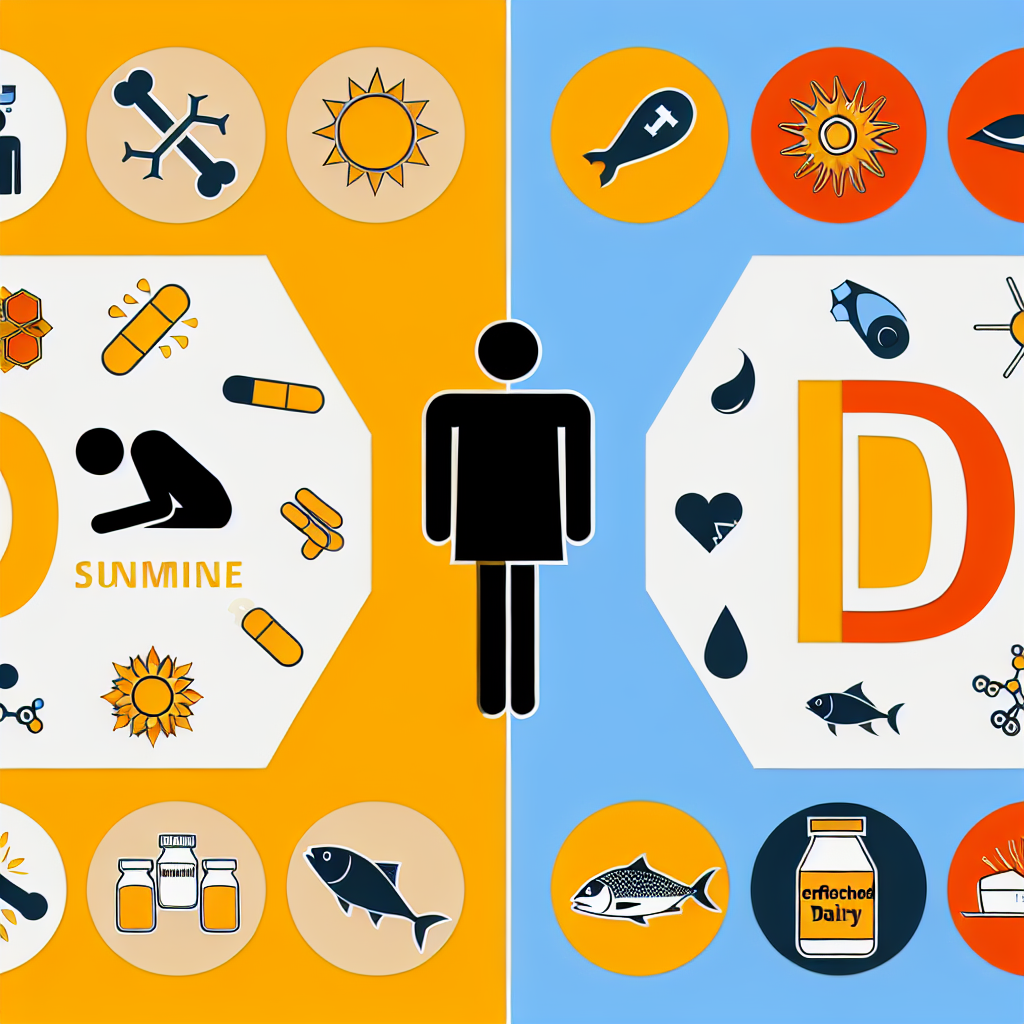Did you know that nearly one billion people worldwide suffer from vitamin D deficiency? This number is staggering, yet so many people aren’t even aware they have it. Often referred to as the “sunshine vitamin,” vitamin D plays a vital role in maintaining bone health, boosting immunity, and regulating mood. Without adequate levels, your body can start showing signs of trouble that are easy to overlook.
If you’ve been dealing with unexplained fatigue, body aches, or a dip in your mood, you might want to take a closer look at your vitamin D levels. Let’s dive into everything you need to know, from spotting the symptoms to finding practical solutions that work for your lifestyle.
Why Is Vitamin D So Important?
Vitamin D is unique because your body can produce it naturally when your skin is exposed to sunlight. It’s also found in certain foods and supplements, but for many people, sunlight remains the primary source. So, what exactly does this vitamin do?
Key Roles of Vitamin D:- It helps your body absorb calcium and phosphorus, keeping your bones strong and healthy.
- It strengthens your immune system, helping it fight off infections and illnesses.
- Vitamin D regulates mood, and low levels have been linked to depression and anxiety.
Without enough vitamin D, your body starts to struggle with these essential functions, often leading to noticeable symptoms over time.
Common Symptoms of Vitamin D Deficiency
Vitamin D deficiency symptoms can appear gradually and may be easy to overlook. However, they can significantly impact your quality of life if left unaddressed. Here are the most common signs:
Physical Symptoms:- Fatigue: Feeling constantly tired, even after a good night’s sleep, can signal insufficient vitamin D levels.
- Achy Bones and Muscles: Aches that don’t go away and general muscle weakness are red flags worth paying attention to.
- Frequent Illnesses: If you always seem to catch colds or infections, your immune system might be struggling without vitamin D.
- Mood Swings and Depression: Studies have linked low vitamin D levels to mood disorders like depression and anxiety.
- Brain Fog: Trouble concentrating and feeling mentally sluggish could also point to vitamin D deficiency.
For children, symptoms are slightly different and include delayed growth and conditions like rickets that weaken and deform bones.
Why Are So Many People Missing Out on Vitamin D?
Vitamin D deficiency is surprisingly common, but understanding the causes can help you address the problem more effectively.
- Limited Sunlight Exposure: Modern lifestyles often keep us indoors for most of the day. Using sunscreen, while protecting skin health, also blocks the body’s ability to synthesize vitamin D from sunlight.
- Poor Dietary Intake: Vitamin D isn’t found in many foods. Unless your diet includes fatty fish or fortified products like milk, it’s easy to fall short.
- Health Conditions: Certain medical conditions, like Crohn’s disease or obesity, interfere with how your body absorbs or uses vitamin D.
- Age and Skin Tone: As you get older, your skin becomes less effective at producing vitamin D. Additionally, people with darker skin need longer sun exposure due to higher levels of melanin.
What Happens If You Leave Vitamin D Deficiency Untreated?
Prolonged deficiency can lead to serious health consequences that are both physical and emotional.
Physical Health Risks:- Weakened bones, which may result in fractures or osteoporosis.
- Increased risk of chronic conditions like heart disease, diabetes, and autoimmune disorders.
- Depression, anxiety, and cognitive decline can all be exacerbated by low vitamin D levels.
- For children, deficiency can lead to severe issues like rickets and delayed development.
How Can You Fix and Prevent Vitamin D Deficiency?
The good news is that vitamin D deficiency is easy to fix once you know what steps to take. Here are some practical strategies:
1. Eat Vitamin D-Rich Foods:Incorporate items like fatty fish (salmon, mackerel), egg yolks, and fortified products (milk, juice, cereal) into your diet. For vegans, UV-exposed mushrooms are a great option.
2. Spend Time in the Sun:Short, regular exposure to sunlight—about 10–30 minutes a few times per week—can help your body build up vitamin D naturally. Be mindful of your skin tone and timing to get the balance just right.
3. Consider Supplements:Sometimes sunlight and food aren’t enough, especially if you have medical limitations or live in a winter-dominant area. Supplements, particularly vitamin D3, can bridge the gap. Always check with your doctor to determine the right dose.
4. Get Tested:If you’re suspecting a deficiency, a simple blood test can provide clarity. Knowing your vitamin D levels takes the guesswork out and ensures you're following the best treatment plan.
Conclusion: Taking Care of Your Health Starts with Vitamin D
The “sunshine vitamin” might not always be top of mind, but its significance can’t be overstated. From protecting your bones to boosting your immune system and stabilizing your mood, vitamin D is a powerful ally in staying healthy and feeling your best.
If you’re noticing symptoms like fatigue or mood swings, don’t ignore them—listen to your body. Whether it’s spending more time outdoors, making dietary changes, or consulting a doctor about supplements, there are plenty of ways to optimize your vitamin D levels starting today.
Take action for yourself and share this article with someone who might need a little nudge to look into their vitamin D levels. Sometimes, a small step like stepping outside or adding a few foods to your plate can make all the difference!
